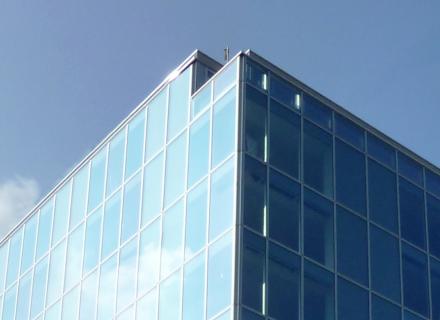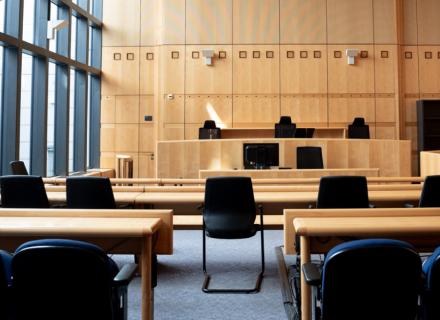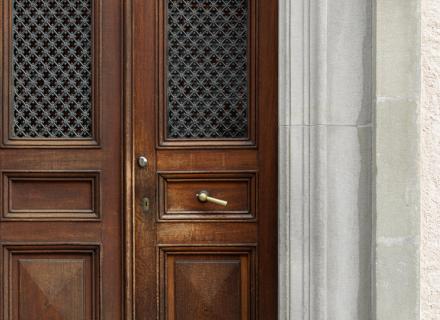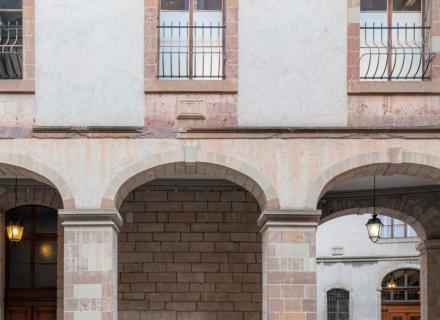Schematic illustration of the criminal law branch
In order to issue their decisions, the Public Prosecutor's Office and the criminal justice authorities proceed with the investigation of the cases : they summon and hear the parties and possible witnesses, order expert opinions, conduct site visits and issue letters rogatory. Depending on the seriousness of the offence committed, the trial shall take place before:
- The Tribunal de police (established penalty: 2 years at the most)
- The Tribunal correctionnel (established penalty: between 2 and 10 years)
- The Tribunal criminel (established penalty: more that 10 years)
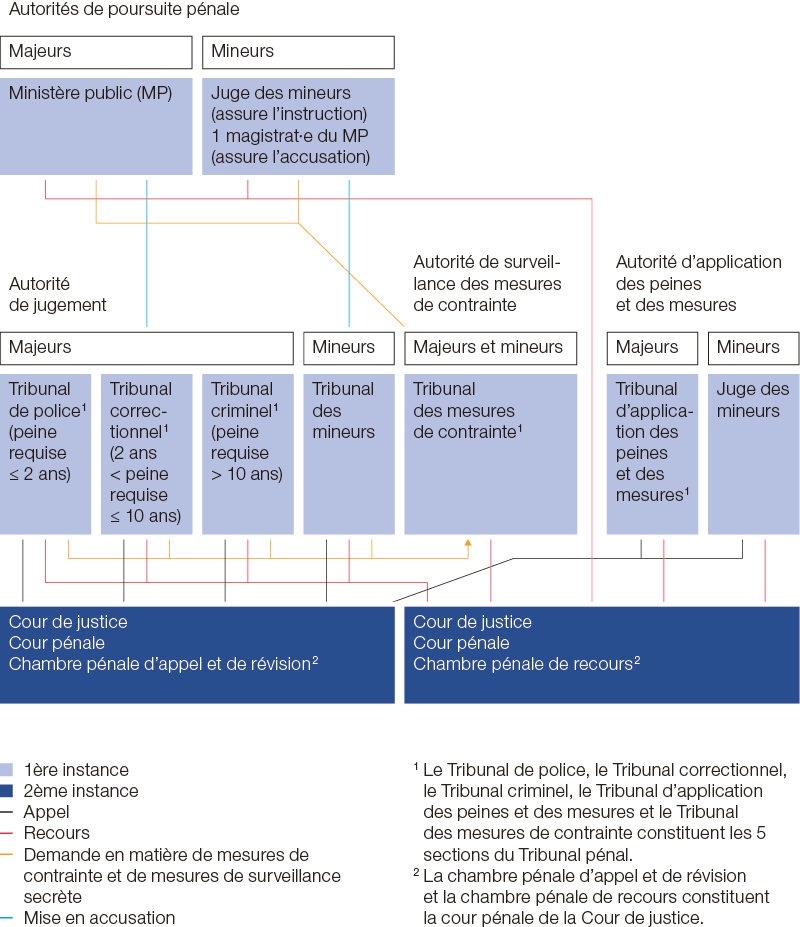
Understanding the criminal law branch through a video

Criminal justice: On the track of the burglar
A couple is the victim of a burglary. A suspect is apprehended by the police and then handed over to the Public Prosecutor's Office.
The criminal justice system prosecutes (Public Prosecutor's Office) and punishes (Public Prosecutor's Office or courts) the perpetrators of offences, i.e., contraventions, misdemeanors and crimes.
